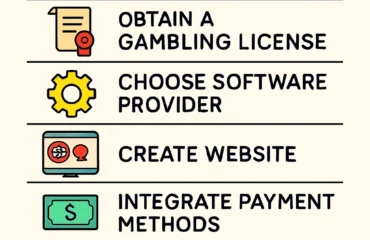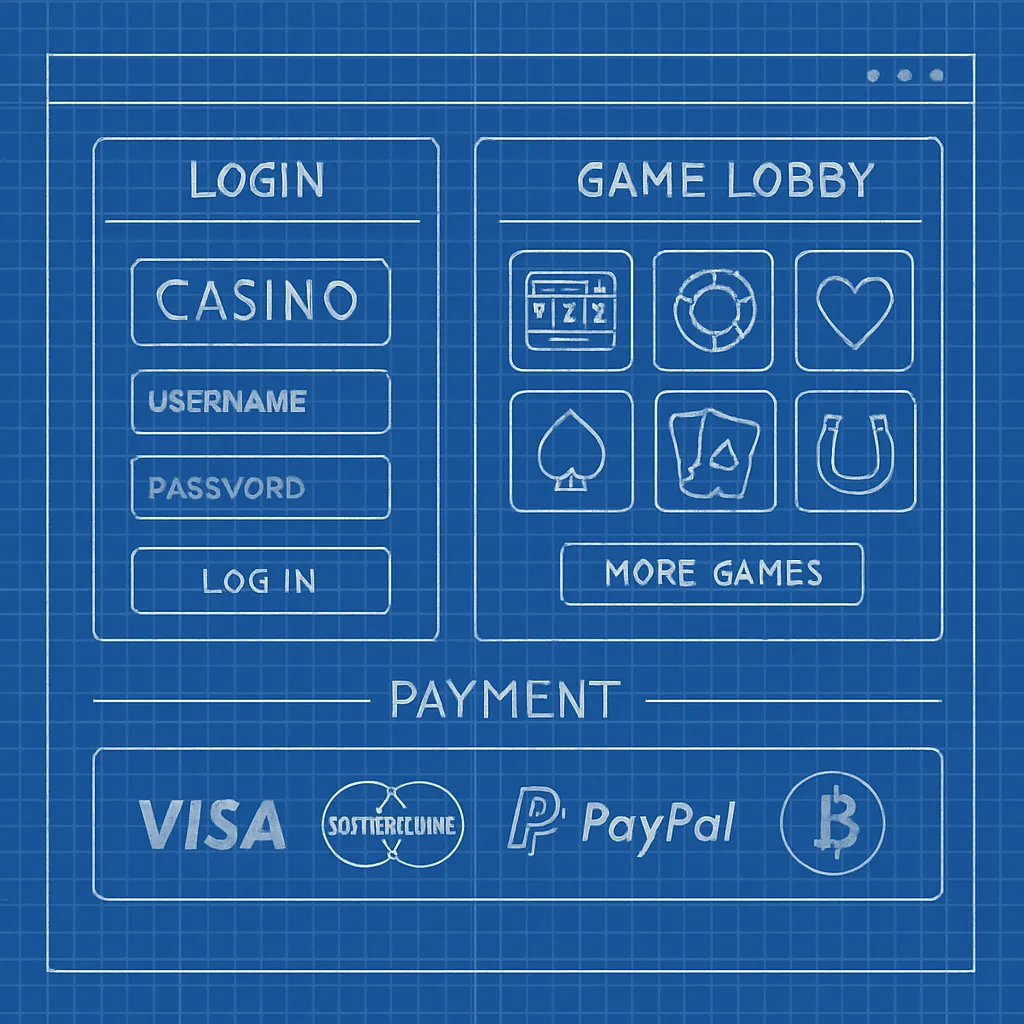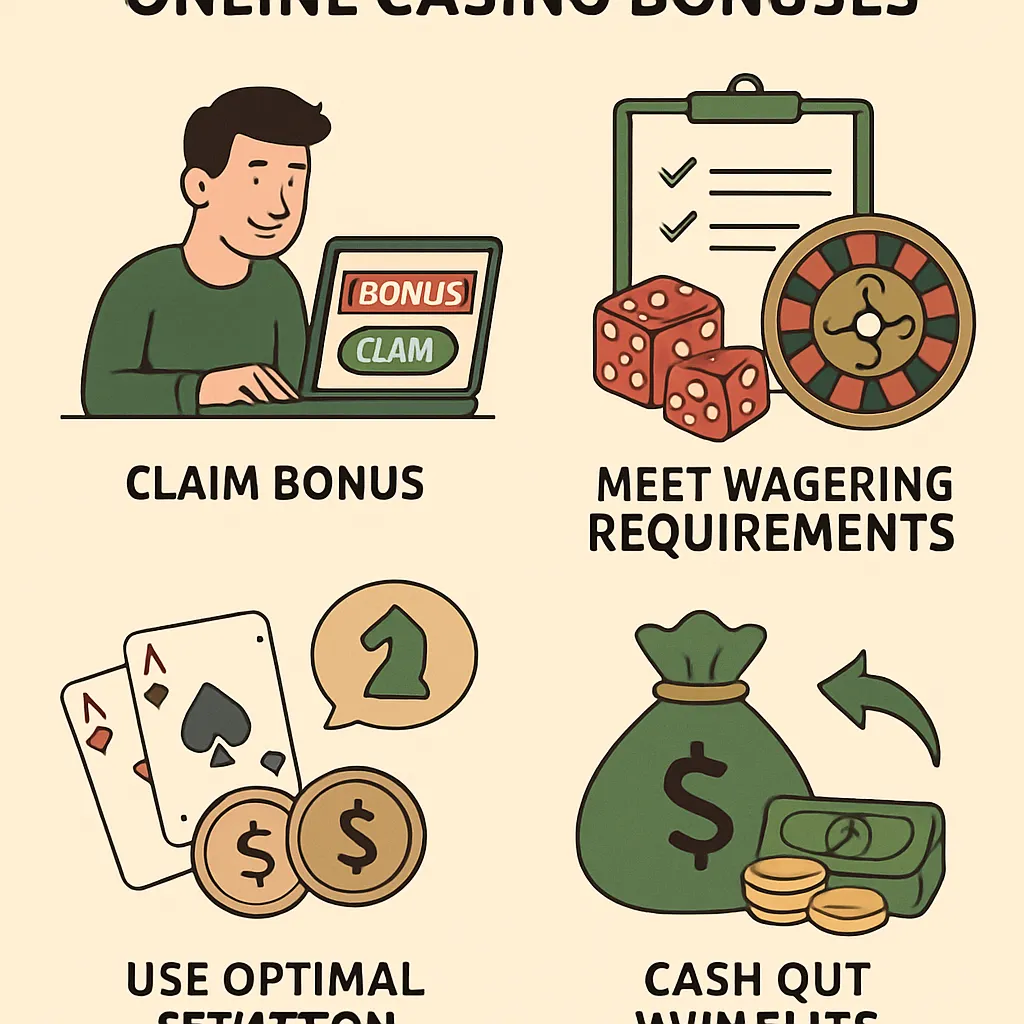How to start an online casino business
2025-07-25

The estimated reading time for this post is 578 seconds
Launching an online casino in 2025 offers immense potential for entrepreneurs looking to tap into the booming iGaming market. The core intent of this guide is to walk you through every critical step—from legal considerations to marketing—to ensure you start a compliant, secure, and profitable operation. By following this comprehensive framework, you’ll understand why now is the perfect time to invest in an online casino, what market forces are shaping player behavior, and how to differentiate your platform from competitors. Whether you’re a seasoned casino operator or a first-time entrepreneur, this roadmap will give you the structure, resources, and actionable advice you need to succeed. Let’s dive in and explore how you can transform your vision into a fully operational online casino. Contact us for assistance in setting up your first platform today.
Why Invest in an Online Casino?
The global online gambling market continues to expand at double-digit CAGR, driven by mobile adoption, new regulation, and innovative game formats. Investors are attracted by recurring revenue from player bets, rake-back deals, and VIP programs that enhance lifetime customer value. Digital casinos require lower overhead than brick-and-mortar venues, eliminating costs such as physical real estate, utilities, and on-site staffing. Scalability is another benefit: adding new games or entering new jurisdictions can be done quickly through software integration. Finally, state legalization and licensing in multiple regions have de-risked the market, making entry more predictable than ever before. If you’re looking for a high-growth, tech-driven opportunity, an online casino is worth serious consideration.
Current Market Trends in Online Gambling
In 2025, live dealer games and virtual reality casinos are among the fastest-growing segments, as players seek immersive and interactive experiences. Mobile apps continue to dominate, accounting for over 70% of all wagers worldwide, and optimizing for small screens is non-negotiable. Cryptocurrency payments and blockchain-based provably fair games are gaining traction, offering enhanced security and transparency. Personalization powered by AI-driven recommendation engines increases player engagement and retention, pushing margins higher. Regulatory trends emphasize responsible gaming and anti-money laundering measures, requiring operators to adopt robust compliance controls. Understanding these trends will help you align your business strategy with evolving player expectations and regulatory landscapes.
Legal and Regulatory Requirements

Obtaining a Gambling License
Securing a valid gambling license is the foundational step to legally operate an online casino. Licensing jurisdictions differ widely in cost, processing time, and regulatory burden, so you must choose the one that best fits your budget and market focus. Many operators start with a reputable but affordable license from Curacao or Malta, then add stricter jurisdictions like the UK or Gibraltar as they scale. The application process typically involves background checks on directors, proof of sufficient capital, and a clear business plan outlining compliance procedures. You must also demonstrate robust anti-money laundering (AML) and know-your-customer (KYC) policies. Once granted, licenses require periodic renewals and ongoing reporting to maintain good standing.
Compliance with International Regulations
Beyond the initial license application, you’ll need to comply with each market’s unique regulations if you plan to accept players globally. Data protection laws such as GDPR in Europe and various privacy acts in the Americas impose strict rules on player data handling and consent. Anti-addiction measures may require self-exclusion tools and player spending limits. Advertising restrictions often dictate where and how you can promote your casino, especially in countries with tighter controls. Taxation rates also vary: some jurisdictions tax gross gaming revenue, while others use turnover or fixed fees. Staying on top of regulatory changes is critical; failure to comply can result in heavy fines or license revocations.
Building Your Online Casino Platform
Choosing Casino Software and Game Providers
Selecting the right software provider and game library is vital to your online casino’s success. Your platform should support a diverse portfolio of games—including slots, table games, live dealer experiences, and specialty titles—to appeal to a broad audience. Leading providers like Microgaming, NetEnt, and Evolution Gaming offer turnkey solutions with customizable front-ends and back-office tools. Evaluate providers based on game quality, RTP (Return to Player) rates, API flexibility, and integration ease. Additionally, ensure the software supports multilingual interfaces and multi-currency wallets if you plan a global launch. Finally, negotiate revenue-share deals or white-label agreements that preserve your margins while offering cutting-edge gaming experiences.
Designing a User-Friendly Casino Website
A seamless, intuitive website design significantly influences player acquisition and retention. Your UX/UI should prioritize fast load times, clear navigation, and responsive layouts for mobile devices. Use high-contrast color schemes and legible typography to enhance readability, especially for live chat and support widgets. Incorporate prominent call-to-action buttons—such as “Sign Up,” “Claim Bonus,” and “Play Now”—to guide users through registration and first deposit. Localized content, language selection, and currency options must be visible from the landing page. Finally, implement accessibility features like keyboard navigation and alt text for images to accommodate all users.
Integrating Secure Payment Solutions
Offering Multiple Payment Options
Diverse payment methods are essential to cater to global audiences and improve conversion rates. Players expect traditional options like credit/debit cards alongside e-wallets (e.g., PayPal, Skrill) and bank transfers. Emerging markets often favor local alternatives such as M-Pesa or Qiwi. To capture tech-savvy players, integrate cryptocurrency wallets supporting Bitcoin, Ethereum, and stablecoins. Prepaid vouchers and gift cards also appeal to privacy-concerned customers. Before integration, research each provider’s transaction fees, withdrawal limits, and settlement times. A smooth checkout experience reduces cart abandonment and boosts initial deposits.
Ensuring Payment Security and Compliance
Secure payment processing is a legal requirement and a trust signal for players. Implement PCI DSS compliance for card payments and use tokenization to protect cardholder data. Two-factor authentication (2FA) adds a layer of security during log-in and withdrawal requests. SSL/TLS encryption must be enforced site-wide to secure data in transit. AML and KYC procedures should be automated via third-party identity verification services to quickly flag suspicious activity. Maintain clear withdrawal policies and transparent fee disclosures to build long-term trust. Regularly audit your payment systems to ensure ongoing compliance and detect vulnerabilities early.
Effective Marketing Strategies for Online Casinos

SEO and Content Marketing
SEO remains one of the most cost-effective channels for acquiring organic traffic in the online casino niche. Conduct thorough keyword research around “online casino business,” “start online casino,” and long-tail variants like “best casino software for startups.” Develop a content calendar that includes guides, tutorials, industry news, and game reviews to establish authority. Optimize on-page elements—titles, meta descriptions, headings, and image alt text—for target keywords. Leverage internal linking between casino strategy articles and bonus pages to improve dwell time. Finally, build high-quality backlinks from reputable gaming blogs and industry associations to boost domain authority and search rankings. Contact us for a tailored SEO audit to kickstart your content strategy.
Social Media Engagement
Social media platforms like Facebook, Instagram, and Twitter offer unique avenues to engage potential players. Create visually appealing posts showcasing big wins, new game launches, and behind-the-scenes content. Run targeted ad campaigns using lookalike audiences based on high-value players. Host live streams on Twitch or YouTube featuring live dealer games and Q&A sessions with dealers. Use platform-specific features—like Instagram Stories polls or Twitter Spaces—to gather feedback and foster community. Ensure compliance with each platform’s gambling ad policies, including age gating and geotargeting restrictions. A strong social presence humanizes your brand and drives direct traffic to your casino site.
Using Affiliate Marketing
An affiliate program leverages third-party partners to promote your casino in exchange for commissions on player revenue. Choose a reliable affiliate management platform that tracks referrals, conversions, and player retention metrics. Offer competitive commission structures—such as revenue share or cost per acquisition (CPA)—to attract top affiliates. Provide affiliates with high-quality marketing materials: banners, landing pages, and exclusive promotions. Monitor affiliate performance regularly to identify and reward high performers, as well as to detect potential fraud. Clear terms and prompt payments build trust and keep affiliates motivated. Affiliate marketing can significantly scale your user base with minimal upfront cost.
Customer Support and Player Retention
Providing Robust Customer Service
Exceptional customer support differentiates top-tier casinos from the rest. Offer 24/7 live chat support staffed by knowledgeable, multilingual agents to resolve issues in real time. Supplement live chat with email and telephone support for more complex inquiries. Implement a well-structured FAQ section and self-service knowledge base to empower players to find answers independently. Track support metrics—first response time, resolution rate, and customer satisfaction scores—to continuously improve service quality. Employ chatbots for routine queries such as balance checks or bonus status. High-quality support reduces churn and fosters positive word-of-mouth.
Loyalty Programs and Bonuses
Loyalty schemes and bonuses are powerful tools to drive repeat play and increase lifetime value. Design a tiered VIP program that rewards players based on wagering thresholds with perks such as cashback, exclusive tournaments, and dedicated account managers. Regularly refresh bonus offerings—welcome bonuses, free spins, reload bonuses, and referral rewards—to maintain excitement. Clearly communicate wagering requirements and bonus terms to avoid disputes. Use personalized promotions fueled by player data and behavior analytics. Track the performance of each bonus type and optimize for maximum ROI. Well-structured loyalty programs turn casual players into brand advocates.
Challenges and Solutions

Handling Security and Fraud Risks
Online casinos are prime targets for fraud and cyberattacks, making security a top priority. Deploy advanced fraud-detection systems that monitor betting patterns for anomalies and flag suspicious transactions. Use machine learning algorithms to detect bots and collusion between accounts. Regularly conduct penetration testing and vulnerability scans to identify weak points. Implement robust server-side security measures—firewalls, intrusion detection systems, and DDoS protection—to ensure uninterrupted service. Educate your team on security best practices and maintain an incident response plan. Promptly investigate and remediate any breaches to preserve player trust and brand reputation.
Adapting to Changing Market Dynamics
The iGaming industry evolves rapidly, with new technologies and regulations emerging frequently. Stay agile by adopting modular, API-driven architectures that allow you to plug in new game providers and payment methods quickly. Monitor industry news and join regulatory working groups to anticipate rule changes. Keep an eye on emerging markets—such as Latin America and Southeast Asia—where online gambling is expanding. Continuously test new promotional channels, game formats, and engagement mechanics through A/B testing. Cultivate a culture of innovation within your team, encouraging experimentation with VR/AR features and blockchain incentives. Being proactive rather than reactive ensures your casino remains competitive and compliant.
Below is a comparison of popular licensing jurisdictions to help you choose the best fit for your online casino:
| Jurisdiction | Application Fee (USD) | Renewal Fee (USD) | Processing Time | Key Benefits |
|---|---|---|---|---|
| Curacao | 2,000 | 1,500 | 4–6 weeks | Affordable, fast setup |
| Malta | 25,000 | 15,000 | 3–4 months | EU market access, reputable |
| UK | 30,000 | 15,000 | 3–6 months | High trust, strict compliance |
| Gibraltar | 50,000 | 30,000 | 4–5 months | Strong financial services hub |
Before you apply, follow these essential preparatory steps:
- Prepare corporate documents and financial statements demonstrating capital adequacy and ownership structure.
- Draft detailed AML/KYC and responsible gaming policies outlining procedures and controls.
- Select target jurisdictions and research their specific application requirements and fees.
- Engage a legal advisor or licensing consultant to review your application materials.
- Submit your application along with all required fees and supporting documentation.
To effectively attract and convert new players, prioritize these channels:
- Search Engine Optimization (SEO) targeting high-intent keywords and long-tail queries.
- Paid search and display advertising on industry networks and Google Ads.
- Social media campaigns on Facebook, Instagram, and TikTok with geotargeted offers.
- Affiliate partnerships offering competitive commission rates and exclusive promos.
- Email and SMS remarketing to re-engage lapsed players with tailored incentives.




